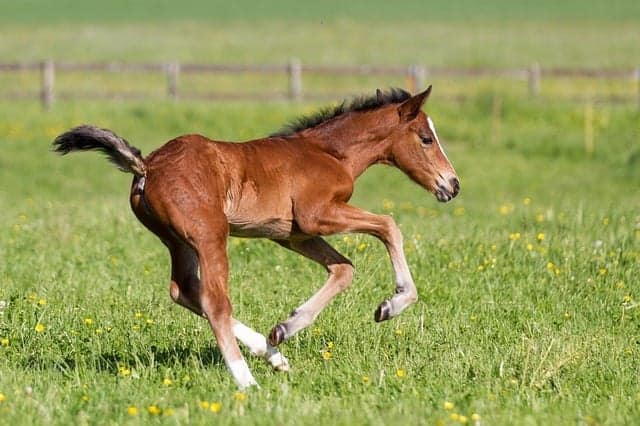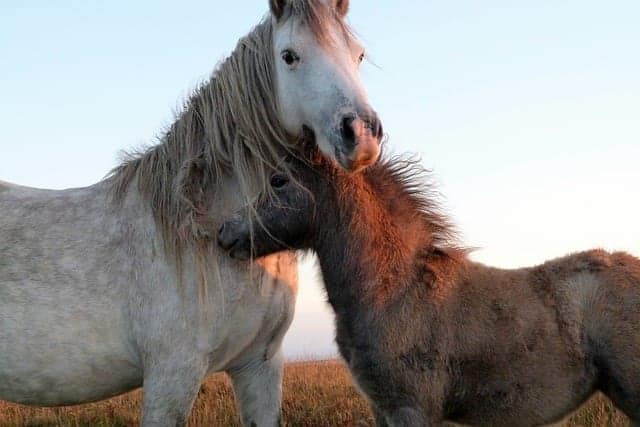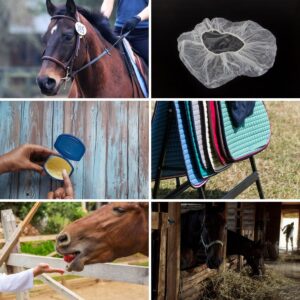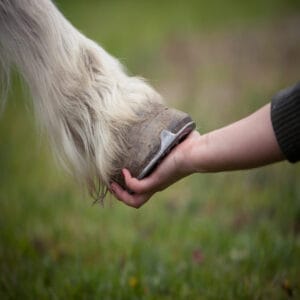After careful research and study in the United States, groundbreaking developments have taken place in an effort to develop a vaccine to protect foals against Rhodococcpus equi. The infection is known for causing a sudden onset of severe implications, including progressive pneumonia, and can also place fatal damage on other organs of the body, as well as affect a horse's brain, bones, abdominal lymph nodes, eyes and joints. A great percentage of foals that develop Rhodococcus equi lose their battle with this deadly infection, as fatality rates range from 20% to 40% of infected foals. This creates a critical and necessary need for a vaccine in the equine world.
Vaccinating mares against the polysaccharide poly-N-acetyl glucosamine appears to effectively protect foals against R. equi pneumonia, researchers found.
R. equi is a Gram-positive bacterium found in soil. As the animals graze, they come in direct contact with the toxic bacteria which leads to infection; foals generally contract the illness after they inhale particles that are R. equi-laden. Treatment of the illness is often prolonged and cost-effective, leading to high mortality rates as it rapidly clusters through farms.
To date, no licensed vaccine exists on the market to protect foals against the spread of this often fatal illness. But groundbreaking research done at Texas A&M School University in College Station, Texas and colleagues at Harvard Medical School hope to soon change that tragic statistic.
Morris Animal Foundation is accredited for funding the most recent research trials, which may finally bring a reality and relief to many with the first ever Rhodococcus equi vaccine. Should this prevail, the breakthrough could help to save hundreds if not thousands of precious foals each and every year.
"After many decades of efforts, our research, funded by Morris Animal Foundation, has led to the first effective vaccine protecting foals against infection with R. equi., considered the most common and important form of pneumonia in foals older than a few weeks of age," said Dr. Noah Cohen, one of the senior authors of the PLOS Pathogens paper describing the vaccine trail, and the Patsy Link Chair in Equine Research at Texas A&M University.
How the study was conducted per Science Daily Reports:
For the vaccine trial, Dr Cohen‘s team first investigated if vaccinating pregnant mares at three weeks and six weeks prior to the birth of their foals protected their newborns against foal pneumonia. The team found antibodies that ward off pneumonia were transferred to the foals via the mares‘ colostrum, which was critical to establish as horses lack the ability to transfer antibodies through the placenta. Most importantly, those antibodies were able to protect almost all the foals born to vaccinated mares from contracting pneumonia.
Next, the team conducted a small, randomised, controlled study of nine foals with R equi. Five foals were given serum with high levels of antibodies against R equi and four were not. All five foals receiving the hyperimmune serum were protected against R equi pneumonia, whereas the foals that received standard plasma all developed pneumonia.
What's more, in addition to protecting foals against pneumonia caused by R. equi, Dr. Cohen said the new vaccine has the potential to protect against other diseases, including sepsis, the leading cause of death for foals in the first few weeks of life.
Horse Courses by Elaine Heney
- Listening to the Horse - The Documentary by Elaine Heney & Grey Pony Films
- Shoulder In & Out Training for better balance, bend & topline development with your horse
- Over 110+ Polework Exercises & Challenges to Download
- Dancing at Liberty & Creating Connection with Your Horse (11 lessons) - Grey Pony Films
Imagine how many precious babies can be saved once this vaccine becomes a wonderful reality? It's a wish for a reality we can't wait to see made come true.







Leave a Reply